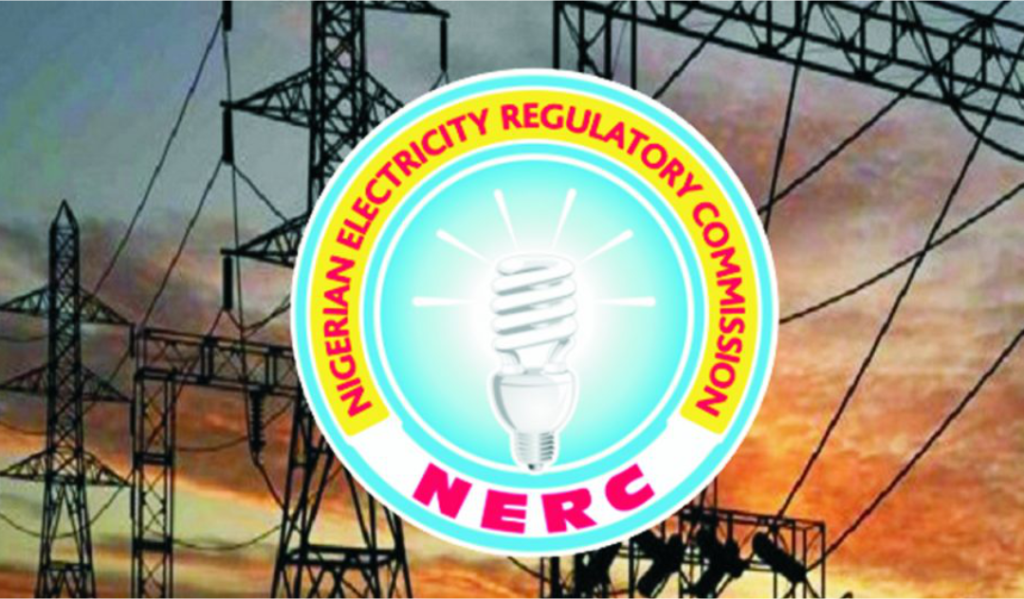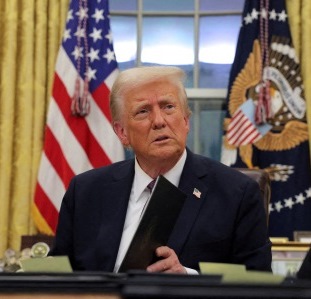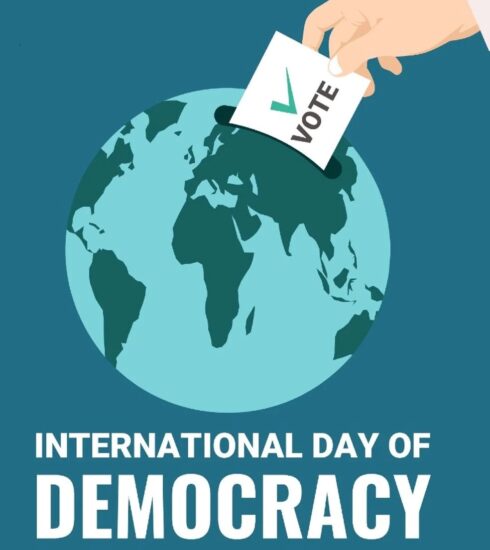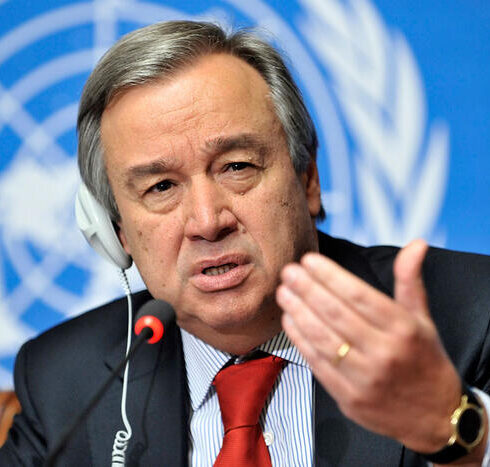Nigeria’s oil and energy infrastructure has a difficult history, replicated in the present. Oil was first discovered in Nigeria in Bayelsa State in 1956. Since oil was discovered in the country, many foreign companies have begun to operate in full force due to a lack of local expertise.
According to a case study done by the Intergovernmental Forum on Mining, “The lack of requisite technology [in the 1970s] and capital compelled the Nigerian National Oil Corporation (NNOC) to enter into mostly joint venture agreements with the operating international oil companies.” At the forefront of the multinationals helping Nigeria was Shell, the first company which discovered oil in Nigeria, licensed ever since 1936 as “Shell D’Arcy.”
Ever since the discovery of oil in Nigeria, numerous other companies began to invest in Nigerian oil. Chevron (starting in 1963), Exxon Mobil (starting exploration in 1955), Eni, an Italian oil company (starting in 1962), and Total (starting in 1956) joined Shell as the major international oil and gas companies in the nation.
Almost immediately after the start of exploration, Nigerian petroleum ran into difficulties. Just a few years after oil was discovered, in 1968, Nigeria was plunged into its first ever civil war between the federal government and the newly-declared People’s Republic of Biafra. Biafra contained 60% of Nigerian oil reserves. The region where Biafra was located remains crucial for Nigeria’s economy today.

Shell Oil and other foreign oil companies have for long being a part of the problem in the Nigerian energy sector. Credit: AMnewsonline
Compounding the problem of the civil war is the inadequacies of the Nigerian judicial system. For instance, when an oil spill occurred during the Biafran civil war, a judicial case suing Shell for being complicit in that spill began and was resolved only 50 years later, in 2021. In another lawsuit, after an appeals court ordered Shell to pay a community 878 million USD for an oil spill in the Niger Delta, the Nigerian Supreme Court decided that Shell should be granted a hearing. The court may reduce the capacity that the Nigerian state has to sue major companies for oil spills. The cases demonstrate the difficulty of combatting major companies complicit in oil spills in court.
These spills happen very frequently. According to a paper on Nigerian power done by the Peace and Security Series, “It is estimated that more than 13 million barrels of oil have been spilled in the Niger Delta since oil production began in the region.” The Niger Delta was the nexus of the Biafran resistance and remains the preeminent oil region in the country. The large amount of fossil fuels spilled in such a crucial region attests to the lacking capacity of Nigerian oil infrastructure.
The spills are examples of the oil and gas sector’s struggles in Nigeria. The former CEO of ACIOE, a Nigerian energy consulting firm, Ekenem Isichei, noted that recently, there has been a sudden decline of foreign investment in Nigerian oil. Isichei’s claim is supported by real data. Nigeria’s Economic Summit Group stated that investment in the sector declined by 26.7% in 2023 and is projected to decline even further into 2024.
The sector’s lack of investment is a result of the broader problems faced by Nigeria’s power industry. A report by KPMG, a consulting firm, noted that the Nigeria Electricity Regulatory Commission (NERC), based on data obtained in 2021, reported that average power distribution in the year was 4,094.09 megawatt (MW), despite available generation capacity of about 8,000 MW.

The National Electricity Regulatory Commission (NERC) is the body charged with regulating power tariffs in Nigeria. Credit: NERC website
Furthermore, banditry, along with pollution and theft, are some of the leading problems facing foreign oil and gas companies like Shell, which recently sold a large chunk of its Nigerian business. However, in 2023, Nigerian President Bola Tinubu cited foreign restrictions as one of the leading reasons for the incapacity of Nigerian oil.
Tinubu has expressed concerns similar to those of other African leaders and business executives like Mr. Isichei, that foreign influence reduces the capacity for the continent to economically advance. For instance, President Mokgweetsi Masisi of Botswana is dissatisfied with Botswana’s current agreement with De Beers, a major diamond company.
The current contract only gives 25% of the diamonds mined in Botswana to the government. Botswana diamonds comprise 70% of the total extracted by the company. Botswana, under Masisi, has stalled negotiations because the president wants to increase the share up to a satisfactory standard.
While Masisi has that bargaining power, President Tinubu, despite his discontent, does not have that ability. Tinubu lacks Masisi’s capacity because his policies on fuel tariffs and subsidies have been inconsistent, weakening his government’s bargaining hand to influence foreign companies to change their ways.
Government Flip-Flopping on Tariffs

Adebayo Adelabu, Nigeria’s Minister of Power who’s been proposing the changes of Nigerian power tariffs PHOTO CREDIT: Facebook
Nigerian energy capacity is not on par with expectations. Though Nigeria is the largest oil producer in Africa, according to the International Energy Agency (IEA), production has declined 40% since 2000. This corresponds with the rising economic problems Nigeria faces, like devaluing of the naira (Nigeria’s currency) and an increase in oil prices.
These headwinds forced President Tinubu and Minister of Power Adebayo Adelabu to partially reinstate fuel subsidies in February of 2024 which President Tinubu initially pledged to completely remove in his campaign manifesto.
In concert with constantly changing tack on fuel subsidies, the Nigerian government has struggled to improve the value of energy because it constantly changes tariffs, causing discomfort for businesses and ordinary people. The government decided to hike tariffs substantially in April of 2024 from 68 naira(0.04 USD) to 225 naira (0.15 USD) per kilowatt-hour for Band A users of power (those who receive 20-24 hours of energy supply per week, or about 1.8 million consumers), a 300% increase. The decision to raise tariffs caused intense discontent among Nigerian businesses, resulting in the looming possibility for bankruptcy in the manufacturing sector.
Recently, the situation has slightly improved for Band A consumers in Nigeria. According to CNBC Africa, a news agency, in May of 2024, the Nigerian Electricity Regulatory Commission (NERC) approved a downward review of electricity tariff for Band A customers to 206 naira 80 kobo (0.14 USD) per kilowatt-hour from the 225 naira per kilowatt-hour (0.15 USD) approved in April this year.
This moderately downward tariff trajectory is a reaction to the appreciation of the naira to the dollar to N1,485 per dollar from N1,490 per dollar. A stronger naira to the dollar increases the capacity businesses have to purchase goods like electricity. A more valuable currency also lets the government better afford cutting tariffs.
Despite this increase in value of the currency making things easier for Nigeria’s government, fuel subsidies remain costly. Nigeria’s past, more extreme subsidies of 7.5 billion USD were blamed for dwindling government finances. If the current trajectory of tariff reductions would continue to the previous 68 naira, NERC estimated that it would cost an estimated 3.2 trillion naira or around 2.1 bn USD to subsidize such low tariffs. The government’s subsidies would be a net negative on the budget without any further appreciation of the naira.
Nigeria and Foreign Companies: Foreign Exchange Problems
Frequent policy changes made by the Nigerian federal government have created an environment where foreign companies can navigate complex legal situations to their advantage. According to OpenDemocracy, a watchdog, Shell, which just exited Nigeria, made an agreement where they still own part of their oil business in the country. The accord is part of a deal the British multinational made with Renaissance, an oil consortium run by 4 Nigerian firms in Switzerland.
The government’s tactics also result in companies with fewer interests in Nigeria to leave altogether. Using information from the International Center for Investigative Reporting, different firms like gas producer Equinor, pharmaceutical giant GlaxoSmithKline, technology giant Microsoft, among others have been departing from Nigeria.
The fact that companies not necessarily involved in oil extraction are leaving the country indicates that the problems facing Nigeria are beyond inadequate power tariff decision-making. Important factors leading to an excess exit of foreign political capital include inflation and unreliable foreign exchange reserves. According to Bloomberg, in April, foreign exchange reserves plunged in order to prop up the naira. During that same month, as was mentioned before, the government decided to drastically increase power tariffs. This decision may have been taken to raise money for foreign exchange reserves.
More recently, around May and June, the higher power tariffs were re-adjusted as the naira benefited from the central bank’s decision to hike MPR (interest rates) by 200 basis points or 2% in March of 2024. This appreciation improved the standing of the naira, reducing inflation, albeit only slightly. The situation in Nigeria has slightly improved as of late, though only after massive changes in tariffs in March of 2024. The Central Bank’s decision followed President Tinubu’s flip-flopping, partially reversing his campaign promise to remove subsidies, only to U-turn once again and increase tariffs, cutting back on subsidies. All of the dithering on policy went on over just a couple of months before the central bank’s decision.
Following Tinubu’s swift implementation of his campaign promise in 2023, the government has made several policy shifts in response to rising inflation which increased from 21.89% in early 2023 to around 30% in early 2024. Despite recent gains, the difficulties the Nigerian government has with inflation contributed to an unstable macroeconomic environment. This instability contributed to the aforementioned mass exodus of foreign companies.
Conflict in the Niger Delta
In addition to the government’s tentative nature on power tariffs and subsidies, crime threatens its oil-producing regions. For instance, ever since the Biafran rebellion, conflict in the region has inexorably been connected to oil production. The conflict happens both because of environmental degradation and competition over revenues made from oil reserves.
The pollution in the Niger Delta brings poverty and low crop yields to farmers. These are the conditions for instability, resulting in indigenous groups protesting the government’s actions in the region by abducting foreign oil workers, bombing of oil installations and destruction of lives and property. These terror actions were carried out by insurgents until 2009, when president Goodluck Johnathan authorized a ceasefire, giving amnesty to all militants.
Despite this truce, a tense standoff remains. The Niger River Delta, where Nigeria gets much of its oil, remains a difficult place for Nigeria to police. According to the Council on Foreign Relations, 16 violent incidents resulted in over one thousand recorded deaths in 2019. This periodic violence remains interlinked with attacks against oil infrastructure.
Conclusion: A Way Forward
Oil investment in Nigeria is difficult, controversial, and fragile. Government indecision over power tariffs has led to frequent changes, initially phasing out subsidies in 2023, partially reintroducing them in February 2024, and then increasing tariffs again in March 2024. These fluctuations, combined with unstable foreign exchange rates and instability in the Niger Delta, have eroded investor confidence, leading to a mass exodus of foreign companies.
The government has been looking to natural gas and renewable energy to reduce problems felt by tariff shifts, hopefully increasing foreign investment. The 1,000 MW Jigwa Solar PV Park (1 Gigawatt or GW) has begun construction and will be completed by 2025. Another major solar park, the Argungu solar park will contribute an estimated 5,600 MW (or 5.6 GW) of energy by 2027. Furthermore, 2 new natural gas processing centers were built during Tinubu’s tenure, resulting in 500 million standard cubic feet of gas in aggregate being supplied to the domestic market. Nigeria hopes that natural gas and solar will help the country turn away from oil to more affordable energy.
The efforts to invest in Argungu and Jigwa Solar PV parks, among other areas, would greatly increase annual solar capacity from being negligible in the present day to about 6.6 GW (not accounting for other solar projects producing less than 400 MW of power) by 2027. This remains below the potential capacity for solar of 427 GW, but manages to be more than half of Nigeria’s yearly electricity capacity of 11.7 GW in 2021. Nigerian solar power remains in its initial stages but could eventually be a good substitute for fossil fuels if the nation can actually generate all of its electricity capacity, which remains to be seen.
Investing in renewables could reduce instability in the Niger Delta by making energy cheaper, reducing competition for the delta’s oilfields. Because renewables are less expensive, Nigeria’s government and people would have fewer concerns about fluctuating power tariffs. Despite the hope of renewables, the government has been unable to actually provide a complete power supply, showing that investment is necessary to modernize the power grid. The recent exodus of foreign companies complicates these efforts, making it uncertain whether Nigeria’s shift to green energy and natural gas will succeed. Only time will tell if these initiatives will bear fruit.






